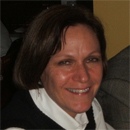Academic Editors
The following people constitute the Editorial Board of Academic Editors for PeerJ. These active academics are the Editors who seek peer reviewers, evaluate their responses, and make editorial decisions on each submission to the journal. Learn more about becoming an Editor.

Markus A Hobert
Markus A. Hobert is specialist for neurology an geriatrics at the University of Kiel. His clinical focus is on neurogeriatrics, Parkinson's disease, dementia and deep brain stimulation. His scientific focus is on quantitative movement analysis, geriatric assessment and motor-cognitive interaction during walking in geriatric patients and patients with neurodegenerative diseases.

Harry Hochheiser
My research has covered a range of topics, including human-computer interaction, information visualization, bioinformatics, universal usability, security, privacy, and public policy implications of computing systems. I am currently working on a variety of NIH-funded projects, including areas such as bioinformatics research portals, visualization for review of chart records, and tools for aiding the discovery of animal models of human diseases.

Ute Hoecker
Professor of Molecular Plant Physiology at the University of Cologne, Germany, and Principle Investigator at the Cluster of Excellence on Plant Sciences (CEPLAS). My current research interests center on photomorphogenesis and light signaling in Arabidopsis.

Christian Hof
Junior Research Group Leader at Technical University of Munich, Germany. Before: researcher at the Senckenberg Biodiversity and Climate Research Centre, Frankfurt. PhD from the University of Copenhagen, Denmark. Diploma (M.Sc.) from Philipps-University Marburg, Germany. Member of the German Young Academy; German Representative of the International Biogeography Society.

Michael M. Hoffman
Michael Hoffman creates predictive computational models to understand interactions between genome, epigenome, and phenotype in human cancers. His influential machine learning approaches have reshaped researchers' analysis of gene regulation. These approaches include the genome annotation method Segway, which enables simple interpretation of multivariate genomic data. He is a Senior Scientist in and Chair of the Computational Biology and Medicine Program, Princess Margaret Cancer Centre and Associate Professor in the Departments of Medical Biophysics and Computer Science, University of Toronto. He was named a CIHR New Investigator and has received several awards for his academic work, including the NIH K99/R00 Pathway to Independence Award, and the Ontario Early Researcher Award.

Christian Hoffmann
Assistant Professor of Microbiome and Nutrition, at the Dept of Food Sciences and Experimental Nutrition, at the University of São Paulo, Brazil, and a Research Fellow at the Laboratory of Applied Immunology, at the University of Brasilia. His experience is focused on the molecular ecology of microbial systems, especially host-associated microbial ecosystems. For the last 10 years, he has centered his research questions on the human gut microbiome, using both human studies as well as animal models. Key aspects of this research include the influence of the gut microbiome on health and disease, the modulation of the gut microbiome through diet and the immune system, especially through the use of unavailable carbohydrates.

Linda Z Holland
Researcher in evolution and development, pioneered amphioxus as a stand-in for the ancestral chordate, Past chair of the Evo-devo division of the Society for Integrative and Comparative Zoology.

Emily Hollister
Situated at the interface of microbial ecology, bioinformatics, and biostatistics, my research group is dedicated to the study of the structure and function of mixed microbial communities. Our work includes the study of the human microbiome and microbiome-environment interactions, as well as the development and improvement of bioinformatics approaches for microbiome analysis. I am an assistant professor in the Department of Pathology & Immunology at Baylor College of Medicine and serve as the Director of Microbial Ecology for the Texas Children's Microbiome Center at Texas Children's Hospital.

Michael WR Holmes
Mike Holmes is an Associate Professor and Canada Research Chair in Neuromuscular Mechanics and Ergonomics at Brock University, St. Catharines, Ontario, Canada. Mike completed a Bachelor of Kinesiology (Honours) and a Master of Science (MSc. Biomechanics) from Memorial University. He obtained a PhD in Biomechanics from McMaster University and completed a one year post-doctoral fellowship at the University of Waterloo.
Combining neuroscience and biomechanics, his work aims to better understand how people become injured at work. The focus of his research program is to better understand work-related upper extremity disorders by identifying mechanisms of injury and pain related to the neuromuscular and biomechanical properties of muscles and ligaments. Using laboratory based techniques, including electromyography, motion capture, electrical stimulation, medical imaging and computer modelling, his fundamental approach leads to workplace applications and investigations.

Gay R. Holstein
Associate Professor of Neurology, Neuroscience, and Cell Biology/Anatomy at the Mount Sinai School of Medicine, NYC.

David WE Hone
I'm a Reader in Zoology at Queen Mary University of London. I've previously worked at University College Dublin and the University of Bristol and had postdoctoral positions at the Institute for Vertebrate Paleontology and Paleoanthropology in Beijing and the Bayerische Staatsammlung für Paläontologie und Geologie in Munich. My work focuses on the (non-avian) dinosaurs as a whole and especially the carnivorous theropods, and also on the flying pterosaurs.

Sungho Hong
Group leader in Computational Neuroscience Unit at Okinawa Institute of Science and Technology; Senior Fellow in the Department of Physiology and Biophysics at the University of Washington, Seattle; PhD in Physics (Theoretical High Energy Physics) from University of Pennsylvania

